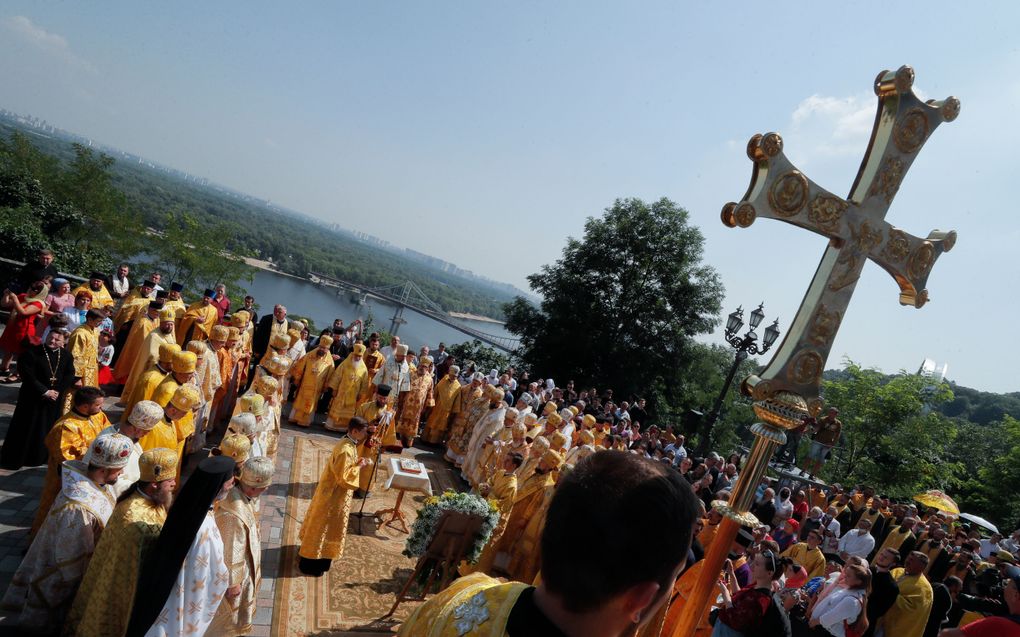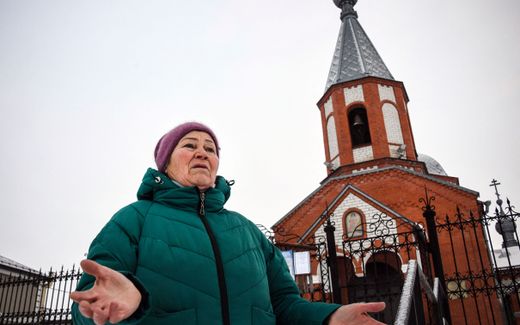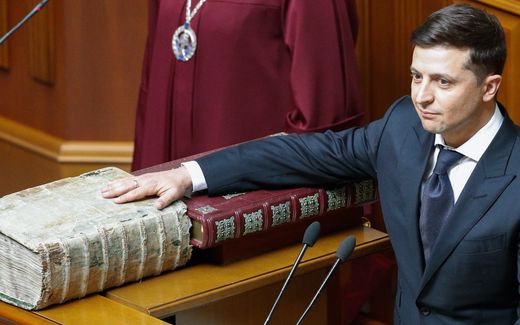Ukrainian is more believing than 20 years ago, survey says
10-02-2022
Eastern Europe
CNE.news

Priests and believers of the Ukrainian Orthodox Church attend a prayer service held at the St. Vladimir's Hill in downtown Kyiv on 28 July 2021. Orthodox believers marked the 1033rd anniversary of Kievan Rus Christianization. Photo EPA, Sergey Dolzhenko
Eastern Europe
Two-thirds of Ukrainians call themselves believers. In the past 20 years, religiosity has grown by just under 10 per cent. The country experienced a 'religious peak' in 2014.
In 2000, 57.8 per cent of the Ukrainians called themselves believers versus 66 to 68 per cent now, according to a comprehensive survey of the Kyiv-based Razumkov Center, about which the Ukrainian news site LB.ua reports. This growth is linked to a reduction of those who waver between faith and unbelief: 22.5 per cent at the beginning of the century versus 13 per cent now. The level of convinced atheists has hardly changed and does not exceed 3.5 to 4 per cent. To this must be added 5 per cent of non-believers.
In 2014 Ukraine reached what sociologists of religion call the ‘religious maximum’. At that time, a record 76 per cent of citizens called themselves believers. Researchers attribute this high percentage to the profound political and social upheaval: the escape of President Viktor Yanukovych to Russia, the annexation of Crimea and the beginning of the war in Eastern Ukraine.
Church services
Traditionally, religiosity is higher in the west of the country, where 87,1 per cent of the citizens consider themselves believers – compared to 87,9 per cent in 2000. The south and east have grown slightly, from 48 to 60 per cent. The centre also tightened up, from 54 to 63 per cent.
About half of Ukrainians attend church services, which has hardly changed since 2000. In general, 15.6 per cent of Ukrainians go to church once a week or more often, another 18 per cent once a month and 34.6 per cent only on major holidays.
Protestants
The share of Orthodox all twenty years remained at about two-thirds, with fluctuations from 60 (2021) to 70.6 per cent (2013). The second-largest denomination is Greek Catholic, with an average of 8 per cent.
The percentage of Protestants (Baptists, Pentecostals, Charismatics, Adventists, Lutherans and Hungarian Reformed) remains stable at 1 to 2 per cent. However, since respondents to the researchers' questionnaire can also describe themselves as 'just Christians' (8 per cent), their share seems to be more towards 10 per cent.
Religion and nation
Ukrainians do not have a connection between religion and nationality. To consider oneself Ukrainian, one does not have to belong to a specific religion or church, almost 80 per cent of the population say that. This is quite a unique phenomenon among all other countries where the majority belongs to Orthodoxy.
The number of those who believe that the church should be nationally oriented has increased by 10 per cent. Still, 44.5 per cent disagree.
More than half of Ukrainians do not support the idea of a state church. The share of those who consider the separation of church and state as a prerequisite for democracy has increased: from 36.4 per cent in 2000 to 49.3 in 2021.
Forty per cent positively perceive the involvement of churches in secular state events (prayers, consecration, blessings). Only 17.5 per cent are negative; a third are indifferent.
Related Articles




